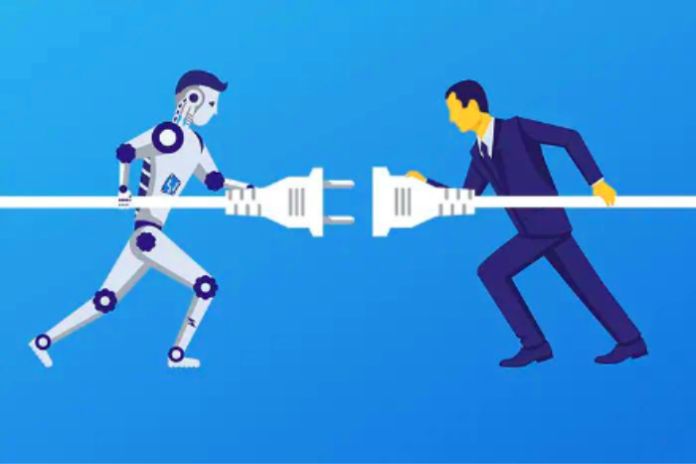Robot: It is widespread in science fiction movies the plot of machines dominating the world where robots are personified to act like humans.
Despite being fiction, humanity has always desired to create robots that could perform tasks in their place. In recent decades, robots have automated many jobs, especially factory production processes using robotic arms, complex machines and automatic machine conveyors. But all these jobs are meant to replace physical skills, so-called manual work. Imagine a robot using a computer to send emails, launch notes, access websites and perform human activities using systems daily may sound like a distant future. However, this is already a reality today with Robotic Process Automation (RPA).
What Are Robots?
When we think of robots, we imagine their physical embodiment: machines that tend to mimic the human appearance and replicate our emotions. However, robots do not need a physical body and can only exist in the virtual world. These robots, better known as bots, are applications programmed to perform specific computer activities. Many bots are already present in people’s daily lives, such as pop-ups on shopping sites that talk to the customer, so-called chatbots or Bots, and pre-programmed messaging software that respond depending on the user’s writing.
Bots like this have been around for a while, but they could only perform simple tasks and were challenging to develop. However, with advances in RPA technology, bots are more sophisticated and can perform most human actions on a computer, from simulating mouse and keyboard usage to recognizing images and acting on them. With this, they can browse the internet, receive emails, make calculations, open files, enter data into systems, fill out spreadsheets and even make decisions based on predefined rules. But it’s not just its capabilities that have been improved; it’s also its accessibility. Programming this type of bot is much easier, and its cost is quite affordable.
What Are The Components Of An RPA Solution?
RPA is “robotic process automation” and refers to using software to perform repetitive, structured, rule-based tasks. Its operation consists of creating a script with step-by-step instructions to be executed by one or more bots whenever triggered. For this, there are three essential components of the solution:
- The studio which creates the scripts.
- The robot is the bot that will execute the hands.
- The Orchestrator manages and monitors the robots.
The studio is generally a low code development platform, where common programming knowledge is required, where it is possible to program and test the bot. This is where all the robot’s steps are developed, and the Orchestrator must coordinate that. The idea is for the studio to be simple and intuitive so that you can build your robot’s solution with just a few hours of programming.
The Orchestrator is an online platform that manages and monitors robots. The Orchestrator connects to the robots, where it is possible to allocate tasks to them manually or scheduled by Schedule (date/time, days of the week, etc.). In addition, it is where the bots’ functioning is monitored, monitoring the work carried out in real-time, recording errors and sending alerts.
The robot is the software that will execute the scripts and can be activated manually or remotely via an orchestrator. It needs a computer turned on to function, and when activated, it starts performing programmed steps and will simulate a person using the computer. For example, if your activity is to access a website, the robot will open a browser, type the Name of the website and press “Enter“, just like a person would. It is important to note that there are two types of robots: assisted and unassisted. Those helped need someone using the computer to command them, like an authentic personal assistant.
Benefits And Limitations
Implementing RPA in companies is essential for increasing productivity and reducing costs in the Digital Age. This is because robots can perform activities quickly, without interruptions and in a standardized way since they will always perform the same sequence of steps established in the script. In the case of unattended robots, they can work 24 hours a day. Not every robotic activity will bring productivity gains or cost reductions. You need to pay attention to your implementation’s return on investment (ROI). High-volume repetitive movements tend to get greater returns, but evaluating aspects such as complexity, business rules, and compatibility of the systems used in the process is necessary.
Also Read: Cybersecurity: How AI Can Contribute To A Safer World?

